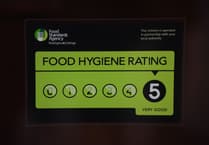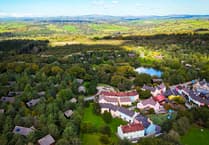A NEW analysis of mobile network performance across Wales reveals connectivity improvements in Carmarthenshire and Pembrokeshire. The study highlights clear leaders and areas still needing investment in connectivity.
The experts at Choose Leisure have uncovered the best and worst counties for mobile network coverage across Wales. For professionals, freelancers, and anyone who relies on connectivity while working on the go, the findings offer crucial guidance.
The analysis found that Flintshire, Monmouthshire, and Glamorgan stand out with the highest coverage readiness and the widest range of available networks, ideal for professionals working remotely, digital nomads, and business travellers.
Both Carmarthenshire and Pembrokeshire are listed in the top 10 Welsh counties with the best network coverage (out of the 22 counties that make up the country), with Carmarthenshire (56.6%) ranking fourth and Pembrokeshire (53%) in seventh place.
The strong performances show that connectivity improvements are spreading across both coastal and inland communities.
Topping the rankings, Flintshire achieved a coverage readiness score of 68.6%, offering one of the most reliable mobile experiences in Wales. With strong network availability and consistent signal strength across multiple operators, the county is well positioned for remote and hybrid workers.
Monmouthshire (61.1%) and Glamorgan (57.9%) follow close behind, reflecting continued investment in digital infrastructure and solid regional connectivity across South and North East Wales.
While the southern regions dominate the top of the table, rural mid-Wales and north-western areas continue to face challenges in achieving consistent mobile performance.
Counties such as Brecknockshire (41.1%), Merionethshire (42.2%), and Anglesey (45.6%) recorded lower coverage readiness scores, fewer network choices, and more variable service quality highlighting the ongoing connectivity gap between Wales’s urban centres and rural communities.
The data shows the dominance of networks such as EE and Vodafone in areas with the best coverage scores, while rural regions often rely on fewer providers. Median ratings for each major network indicate consistent strengths in coverage quality in Wales’s top-performing counties.
Dave Williams, managing director at Choose Leisure, shared his top tips for working smoothly on the go:
Check local coverage before you travel - Use network coverage maps or Ofcom’s checker to confirm signal strength at your destination.
Carry a second SIM or mobile hotspot - Different networks perform better in different regions; having a backup avoids downtime.
Download key files offline - Don’t rely entirely on cloud access, store important documents locally before travelling.
Use Wi-Fi calling and tethering smartly - These features can keep you online when mobile data dips.
Consider mobile boosters or routers - Especially useful for motorhome users or those staying in rural areas.
Plan calls around coverage zones - Schedule meetings for times or places where you know you’ll have a strong signal.
“For anyone working remotely or travelling across the UK, mobile coverage is no longer just a convenience, it’s a lifeline,” said Dave. “Reliable connectivity dictates where people can realistically work, plan routes, and stay productive on the move. Our analysis shows that being connected isn’t only about geography anymore, it’s about being prepared and choosing destinations with the right digital infrastructure.
“What we’re seeing now is a real shift in how people plan their time on the road, they’re thinking about signal strength and data coverage in the same way they’d check fuel levels or travel routes.
“For professionals, freelancers, and digital nomads, the ability to join a video call or send files from a layby or a campsite can define how flexible their lifestyle truly is. Strong network access isn’t just a tech issue; it’s becoming a key factor in how people choose to travel, work, and even where they spend their money.”





Comments
This article has no comments yet. Be the first to leave a comment.